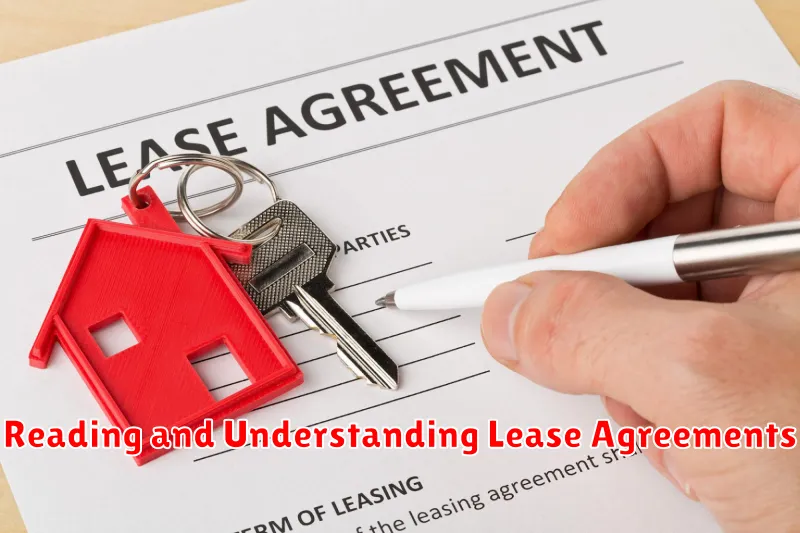Renting your first apartment is a significant milestone, marking a transition to independence and a new chapter in life. This complete guide is designed to equip you with the essential knowledge and practical tips you need to navigate the often-complex world of apartment rentals. From understanding lease agreements and rental applications to budgeting effectively and finding the perfect apartment for your needs, this guide will provide you with the tools to make informed decisions and embark on your renting journey with confidence.
Whether you’re a first-time renter fresh out of college or simply looking to move out of your parents’ home, this guide will cover every aspect of the apartment rental process. We’ll explore key topics such as security deposits, renters insurance, and tenant rights. We’ll also delve into the intricacies of finding an apartment, from browsing online listings to attending apartment viewings and negotiating lease terms. By the end of this guide, you’ll be well-prepared to find your ideal apartment and successfully navigate the rental process.
Understanding the Rental Process from Start to Finish
Finding the right rental property requires careful planning and execution. Begin by determining your budget and desired location. Use online resources and local real estate agents to explore available properties. Thoroughly research neighborhoods, considering factors such as safety, commute times, and proximity to amenities. Once you’ve identified potential rentals, schedule viewings to assess their condition and suitability. Pay close attention to the size, layout, appliances, and overall maintenance.
The application process typically involves completing a rental application form and providing supporting documentation. Be prepared to provide proof of income, employment history, and references. Landlords may also conduct credit checks and background checks to assess your financial stability and reliability. If your application is approved, you’ll be asked to sign a lease agreement. Carefully review all the terms and conditions of the lease, including the rent amount, lease duration, security deposit, and any specific rules or regulations.
Before moving in, conduct a thorough inspection of the property with the landlord and document any existing damage. This helps protect you from being held responsible for pre-existing issues. Once you’ve moved in, pay your rent on time and fulfill your responsibilities as a tenant as outlined in the lease agreement. Maintaining open communication with your landlord is crucial throughout the tenancy. Should any issues arise, address them promptly and professionally.
Setting a Budget and Knowing Your Limits
Setting a budget is a critical first step in managing your finances effectively. It allows you to track your income and expenses, ensuring you’re spending wisely and saving for your future goals. A well-defined budget helps you prioritize your spending, avoid unnecessary debt, and gain a clearer understanding of your overall financial health. Begin by calculating your total monthly income and then list all your essential expenses, such as housing, food, and transportation. Next, allocate funds for discretionary spending and savings. Regularly reviewing and adjusting your budget is essential to ensure it remains relevant to your current financial situation.
Knowing your financial limits is equally important. This involves understanding how much debt you can comfortably manage and avoiding overspending. Your budget serves as a valuable tool in determining these limits. By tracking your spending and comparing it to your income, you can identify areas where you might be exceeding your limits and make necessary adjustments. Living within your means is crucial for building a secure financial future and avoiding the stress and consequences of excessive debt.
Budgeting and recognizing your financial limits are foundational to responsible money management. These practices empower you to make informed decisions about your finances, achieve your financial goals, and build a more stable and secure financial future. By incorporating these principles into your daily life, you’ll be better prepared to handle unexpected expenses, save for important milestones, and achieve long-term financial well-being.
How to Search for Apartments Online

Finding the perfect apartment online requires a strategic approach. Begin by determining your budget and desired location. Utilize online search platforms with advanced filtering options like price range, number of bedrooms, and pet policies. Refine your search using keywords relevant to your needs, such as “in-unit laundry” or “parking included”. Carefully review apartment listings, paying close attention to photos, floor plans, and amenity lists. Don’t hesitate to contact property managers directly to schedule virtual tours or inquire about availability.
Once you’ve identified a few promising options, thorough research is essential. Look up reviews and ratings of potential properties. Consider proximity to work, public transportation, and local amenities like grocery stores and parks. Use online tools like Google Maps Street View to get a feel for the neighborhood. If possible, connect with current or former tenants to gather firsthand insights.
Finally, before committing to a lease, carefully review the terms and conditions. Pay particular attention to the length of the lease, security deposit requirements, and any associated fees. If everything aligns with your needs and budget, proceed with the application process. Be prepared to provide necessary documentation such as proof of income and references.
What to Look for During an Apartment Tour

An apartment tour is your chance to evaluate a potential home beyond photos and online descriptions. Safety should be a top priority. Check the locks on doors and windows, inquire about security measures, and observe the overall condition of the building. Also, consider the location in relation to your work, transportation, and amenities. Evaluate the noise levels both inside and outside the apartment. If possible, visit during the time of day you’d typically be home to get a more realistic sense of the environment.
Pay close attention to the condition of the apartment itself. Look for signs of water damage, pests, or poor maintenance. Test the water pressure and temperature in the kitchen and bathroom. Examine the appliances to ensure they are in working order. Storage space is often overlooked but can be crucial. Open closets and cabinets to assess their size and functionality. Consider whether the apartment’s layout and size will suit your needs and lifestyle.
Finally, don’t hesitate to ask questions. Clarify anything that is unclear in the listing or lease agreement. Inquire about pet policies, parking arrangements, and guest policies. A thorough apartment tour can help you make an informed decision about your next home, so be observant, inquisitive, and prioritize your needs.
Reading and Understanding Lease Agreements

A lease agreement is a legally binding contract between a landlord (lessor) and a tenant (lessee) outlining the terms and conditions for renting a property. Careful review of this document is crucial before signing. Key components include the lease term (duration), rent amount and due date, security deposit details, and permitted uses of the property. Understanding these elements protects both parties and prevents future disputes.
Pay close attention to clauses regarding maintenance responsibilities, pet policies, and any restrictions on subletting or alterations to the property. Late payment penalties and lease termination procedures should also be clearly understood. If any aspect of the agreement is unclear, seek clarification from the landlord or consult with a legal professional.
Taking the time to thoroughly read and understand your lease agreement can save you from significant headaches and potential financial loss down the road. Don’t hesitate to ask questions and ensure you are comfortable with all the terms before signing. A clear understanding of your rights and responsibilities as a tenant is essential for a successful tenancy.
Security Deposits and Upfront Costs
Before moving into a rental property, tenants are often required to pay several upfront costs. One of the most common is the security deposit. This sum is held by the landlord to cover potential damages to the property beyond normal wear and tear. It’s also sometimes used to cover unpaid rent or other breaches of the lease agreement. The amount of the security deposit can vary, but it is often equivalent to one or two months’ rent. Landlords are legally obligated to return the security deposit to the tenant at the end of the lease, minus any deductions for legitimate expenses.
In addition to the security deposit, tenants may also be required to pay first month’s rent upfront. Other potential upfront fees could include application fees, which cover the cost of processing the tenant’s application and background check, and pet fees if applicable. Some landlords may also require last month’s rent in advance. It’s crucial for tenants to carefully review the lease agreement and understand all upfront costs before signing.
Understanding these upfront costs is essential for budgeting appropriately and avoiding unexpected financial strain. By clearly communicating with the landlord and obtaining a detailed breakdown of all expected charges, tenants can ensure a smooth and transparent move-in process.
Tips for Moving In Smoothly
Moving can be a stressful experience, but proper planning can significantly ease the transition. Start early by creating a comprehensive checklist of tasks, including contacting utility companies, forwarding mail, and arranging for movers or rental trucks. Declutter your belongings before packing to minimize the volume of items you need to transport and unpack. Pack room by room, labeling boxes clearly with their contents and destination room. Having an essentials box with necessary items for the first day or two, like toiletries, medications, and a change of clothes, can also make a big difference.
On moving day, confirm arrival times with movers or helpers. Protect your belongings by using appropriate packing materials and ensuring fragile items are clearly marked. Keep important documents, valuables, and essential items with you personally. Communicate clearly with everyone involved in the move, providing directions and answering questions promptly. Maintaining a positive and organized approach can keep things running smoothly.
Once you arrive at your new home, take inventory of your belongings as they are unloaded. Double-check that everything arrived safely and that nothing is missing. Start unpacking strategically, focusing on essential areas first, such as the kitchen and bedrooms. Take breaks as needed and don’t feel pressured to unpack everything immediately. Remember to take time to connect utilities and familiarize yourself with your new surroundings.

